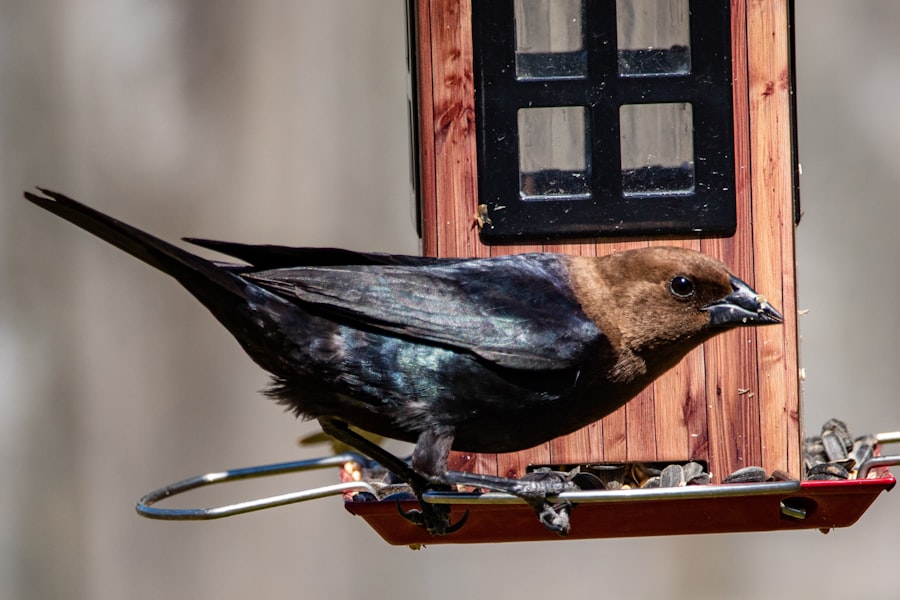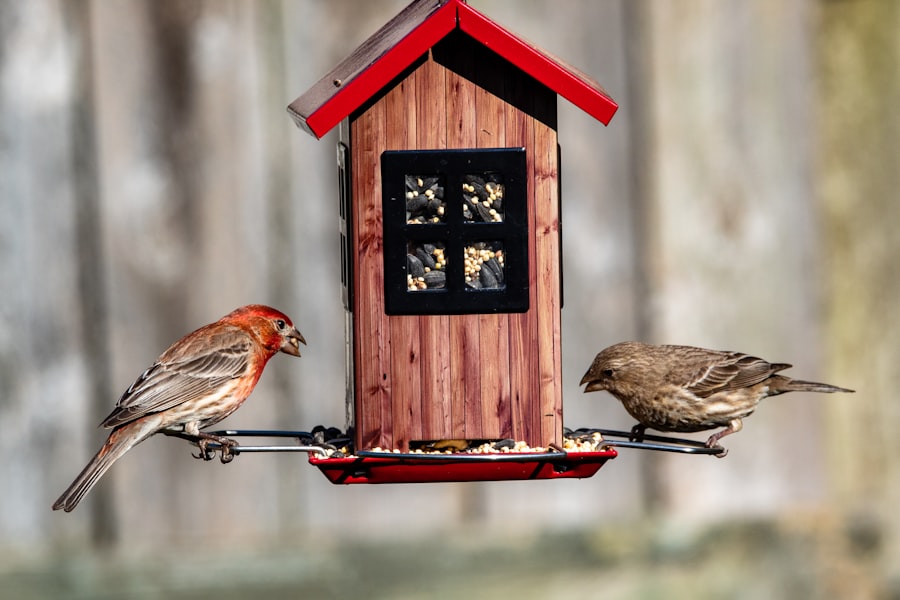Selecting the appropriate chicken breed is essential for successful poultry farming. Various breeds are available, each with distinct traits and care requirements. For egg production, Rhode Island Red, Leghorn, and Australorp are popular choices.
Plymouth Rock and Wyandotte breeds are known for their dual-purpose capabilities, providing both eggs and meat. Orpington and Silkie breeds are noted for their docile and friendly temperaments. For ornamental purposes, Polish and Frizzle breeds can enhance the visual appeal of a flock.
When choosing a breed, it is important to consider specific needs and objectives. Factors to evaluate include the primary purpose (egg production, meat, or both), preferred egg color and size, and desired chicken temperament. Climate adaptability is also crucial, with some breeds being more cold-hardy or heat-tolerant than others.
Available space and whether the chickens will be free-ranging or confined should also be taken into account. Assessing these factors helps in selecting a breed that is well-suited to individual circumstances and will thrive under the provided care.
Table of Contents
- 1 Building a Coop
- 2 Providing Proper Nutrition
- 3 Ensuring Safety and Security
- 4 Maintaining Cleanliness
- 5 Handling Health and Wellness
- 6 Understanding Local Regulations
- 7 FAQs
- 7.1 What are the benefits of keeping chickens in your yard?
- 7.2 What do I need to consider before keeping chickens in my yard?
- 7.3 What kind of housing do chickens need?
- 7.4 What do chickens eat and how do I care for them?
- 7.5 How do I keep my chickens safe from predators?
- 7.6 How do I maintain good hygiene for my chickens and their coop?
Key Takeaways
- When choosing a breed, consider factors such as egg production, temperament, and climate adaptability
- Building a coop requires careful planning for space, ventilation, and predator-proofing
- Proper nutrition for chickens includes a balanced diet of grains, greens, and protein
- Ensuring safety and security involves securing the coop from predators and providing a safe environment for the chickens
- Maintaining cleanliness is essential for preventing diseases and keeping the coop odor-free
- Regular health check-ups and vaccinations are important for the overall wellness of the chickens
- Understanding local regulations is crucial for compliance with zoning laws and animal welfare standards
Building a Coop
Space and Ventilation
The coop should be spacious enough to accommodate your flock comfortably, with each chicken having at least 2-3 square feet of space inside the coop, and additional space in the outdoor run. Adequate ventilation is also essential to prevent moisture buildup and ensure good air quality. Windows and vents can help regulate temperature and airflow within the coop.
Predator Protection
The coop should be predator-proof to keep your chickens safe from harm. This can be achieved by using sturdy materials for construction, such as hardware cloth or welded wire, and securing all openings with locks or latches. Additionally, consider adding a predator apron around the perimeter of the coop to deter digging animals like raccoons and foxes.
Comfort and Convenience
Providing roosting bars and nesting boxes inside the coop will give your chickens a place to rest and lay eggs. Finally, consider the location of the coop on your property. It should be situated in a well-drained area with good sunlight and easy access for cleaning and maintenance.
Providing Proper Nutrition

Proper nutrition is essential for keeping your chickens healthy and productive. A well-balanced diet will provide the necessary nutrients for egg production, growth, and overall well-being. The foundation of a chicken’s diet is a good quality commercial feed that is formulated specifically for their age and purpose.
Chickens require different levels of protein at different stages of life, so be sure to select a feed that meets their nutritional needs. Additionally, offering supplemental treats like fruits, vegetables, and grains can provide variety and enrichment for your flock. Fresh, clean water should be available to your chickens at all times.
Water is essential for digestion, temperature regulation, and overall health. Consider using a waterer that is designed to prevent spills and contamination, such as a nipple or gravity-fed system. In addition to feed and water, providing access to grit and oyster shell is important for proper digestion and eggshell formation.
Grit helps chickens grind their food in their gizzards, while oyster shell provides calcium for strong eggshells. By ensuring that your chickens have access to a well-rounded diet, you can promote their health and longevity.
Ensuring Safety and Security
Ensuring the safety and security of your chickens is paramount to their well-being. Predators such as raccoons, foxes, hawks, and even neighborhood dogs pose a threat to your flock. To protect your chickens from harm, it’s important to implement various security measures.
Start by securing the perimeter of your coop and run with sturdy fencing that is buried underground to prevent digging predators from gaining access. Use hardware cloth or welded wire with small openings to prevent predators from reaching through or squeezing in. Additionally, consider installing motion-activated lights or sound devices to deter nocturnal predators.
Locking the coop securely at night will also help keep your chickens safe from harm. If free-ranging your chickens, supervise them during the day or use electric netting to create a secure area for them to roam. Providing adequate shelter and hiding spots within the run can also give your chickens a place to escape from aerial predators.
By being proactive and diligent in implementing security measures, you can create a safe environment for your flock to thrive.
Maintaining Cleanliness
Maintaining cleanliness in and around the coop is essential for preventing disease and promoting good health in your flock. Regular cleaning and maintenance will help keep your chickens comfortable and reduce the risk of illness. Start by keeping the coop dry and well-ventilated to prevent moisture buildup, which can lead to mold, bacteria, and respiratory issues.
Remove soiled bedding regularly and replace it with fresh material to keep the coop clean and odor-free. Nesting boxes should be cleaned regularly to remove soiled bedding and any eggs that have been broken or soiled. This will help prevent egg-eating behavior and keep the nesting boxes inviting for your hens.
In the outdoor run, regularly rake or turn over the soil to prevent the buildup of waste and parasites. Consider using deep litter or composting methods to manage waste in the run while providing enrichment for your chickens. By staying on top of cleaning tasks and maintaining a tidy environment for your flock, you can help prevent health issues and ensure their well-being.
Handling Health and Wellness

Identifying Potential Issues Early On
Regular observation of your chickens’ behavior, appearance, and egg production is crucial in identifying any potential health issues early on. Keep an eye out for signs of illness such as lethargy, decreased appetite, abnormal droppings, respiratory symptoms, or changes in behavior.
Preventing Disease and Parasites
Practicing good biosecurity is essential in preventing disease from entering your flock. This includes quarantining new birds before introducing them to your existing flock, limiting exposure to wild birds and rodents, and practicing good hygiene when handling your chickens. Providing regular access to dust baths can also help control external parasites like mites and lice.
Proactive Measures for Optimal Health
Consider vaccinating your chickens against common diseases such as Marek’s disease or Newcastle disease if recommended by a veterinarian. By staying proactive in monitoring and maintaining the health of your flock, you can help ensure their overall well-being. Remember to consult with a veterinarian who specializes in poultry health if you notice any concerning symptoms.
Understanding Local Regulations
Before embarking on raising chickens, it’s important to understand the local regulations and ordinances that govern poultry keeping in your area. Zoning laws, homeowner’s association rules, and local ordinances may dictate how many chickens you can keep, where you can keep them, and what kind of structures are allowed on your property. Some areas may require permits or inspections for keeping chickens, while others may have specific guidelines for coop construction or waste management.
By familiarizing yourself with these regulations upfront, you can avoid potential legal issues down the road and ensure that you are in compliance with local laws. Additionally, understanding these regulations can help you make informed decisions about how many chickens to keep and what kind of setup will work best for your property. If you’re unsure about the regulations in your area, reach out to local animal control or zoning authorities for guidance.
By being proactive in understanding and following local regulations, you can enjoy raising chickens while being a responsible member of your community. In conclusion, raising chickens can be a rewarding experience that provides fresh eggs, entertainment, and a connection to nature. By carefully selecting the right breed for your needs, building a secure coop, providing proper nutrition, ensuring safety and security, maintaining cleanliness, handling health and wellness, and understanding local regulations, you can create a thriving environment for your flock to flourish.
With dedication and attention to detail, you can enjoy the many benefits of raising chickens while providing them with a happy and healthy life on your property.
If you’re considering keeping chickens in your yard, you may also be interested in learning about how many eggs geese lay. Check out this article on Poultry Wizard to find out more about geese breeding and egg production.
FAQs
What are the benefits of keeping chickens in your yard?
Keeping chickens in your yard can provide you with a sustainable source of fresh eggs, natural pest control, and fertilizer for your garden. They also make great pets and can teach responsibility to children.
What do I need to consider before keeping chickens in my yard?
Before keeping chickens in your yard, you need to check local regulations and zoning laws, consider the space and housing requirements for the chickens, and ensure you have the time and resources to care for them properly.
What kind of housing do chickens need?
Chickens need a secure and predator-proof coop for roosting and laying eggs, as well as a run or fenced area for exercise. The coop should provide protection from the elements and have nesting boxes for egg-laying.
What do chickens eat and how do I care for them?
Chickens need a balanced diet of commercial chicken feed, supplemented with kitchen scraps, grains, and greens. They also need access to fresh water at all times and regular health check-ups to prevent diseases.
How do I keep my chickens safe from predators?
To keep your chickens safe from predators, you should secure their coop with strong wire mesh, lock them up at night, and consider using motion-activated lights or alarms to deter predators.
How do I maintain good hygiene for my chickens and their coop?
Maintaining good hygiene for your chickens and their coop involves regularly cleaning the coop, replacing bedding, and keeping the feeding and watering areas clean. This helps prevent the spread of diseases and parasites.
Meet Walter, the feathered-friend fanatic of Florida! Nestled in the sunshine state, Walter struts through life with his feathered companions, clucking his way to happiness. With a coop that’s fancier than a five-star hotel, he’s the Don Juan of the chicken world. When he’s not teaching his hens to do the cha-cha, you’ll find him in a heated debate with his prized rooster, Sir Clucks-a-Lot. Walter’s poultry passion is no yolk; he’s the sunny-side-up guy you never knew you needed in your flock of friends!







